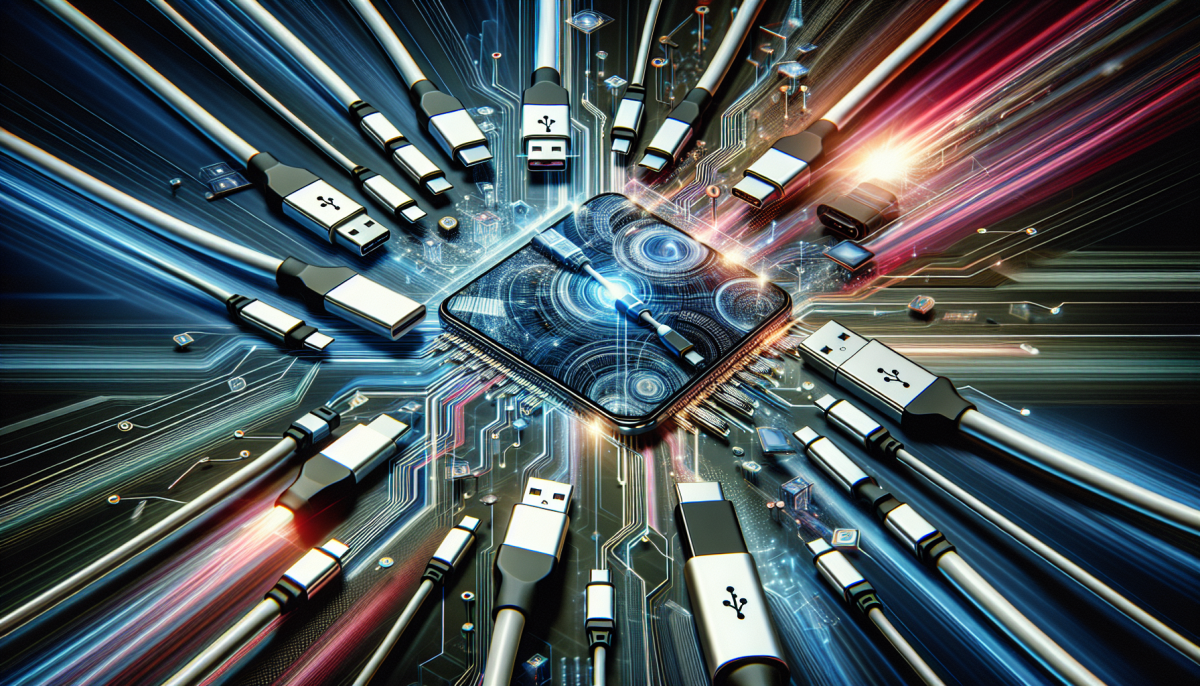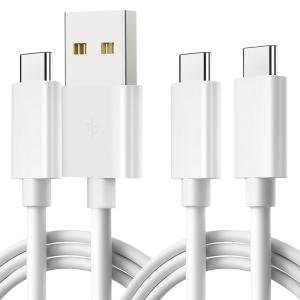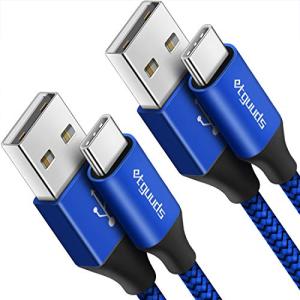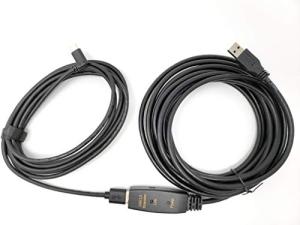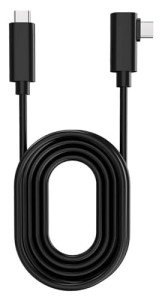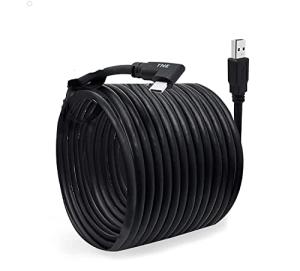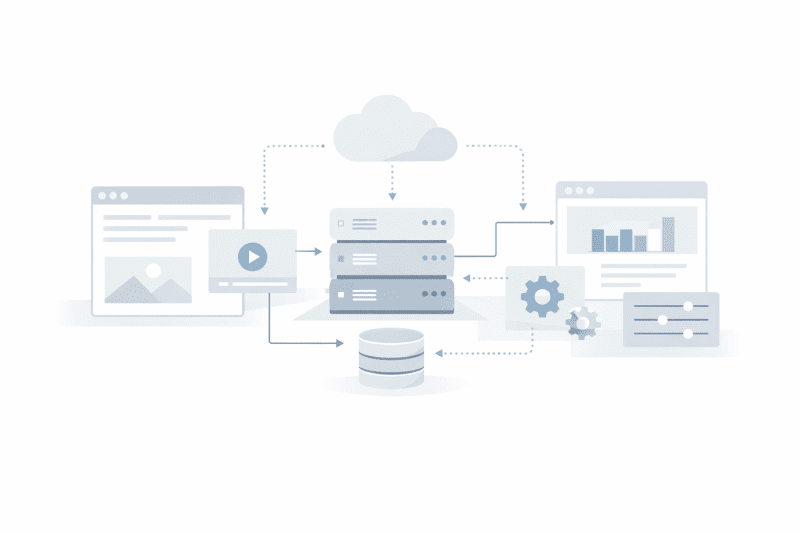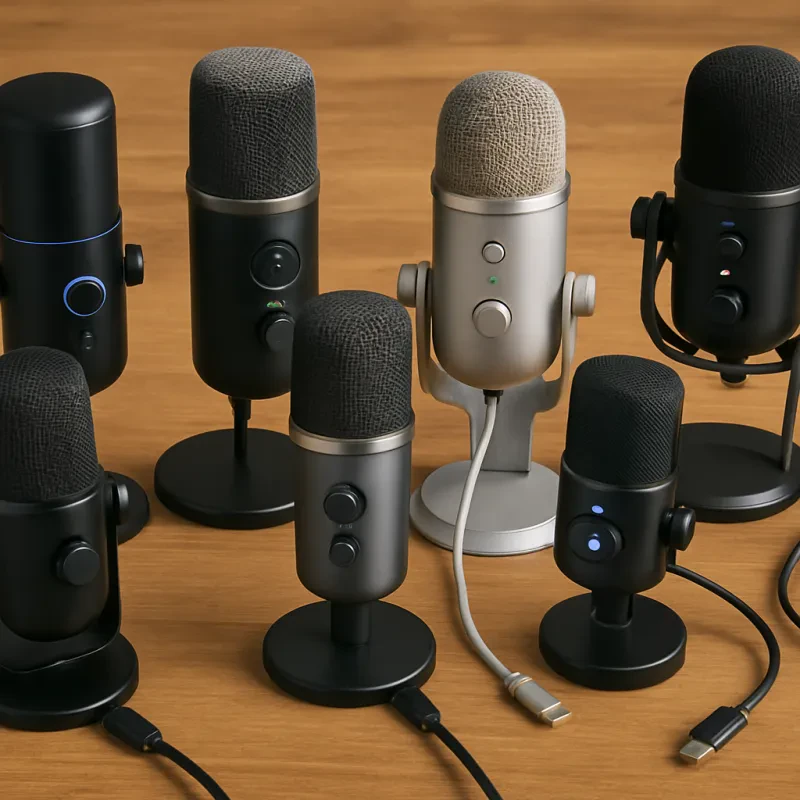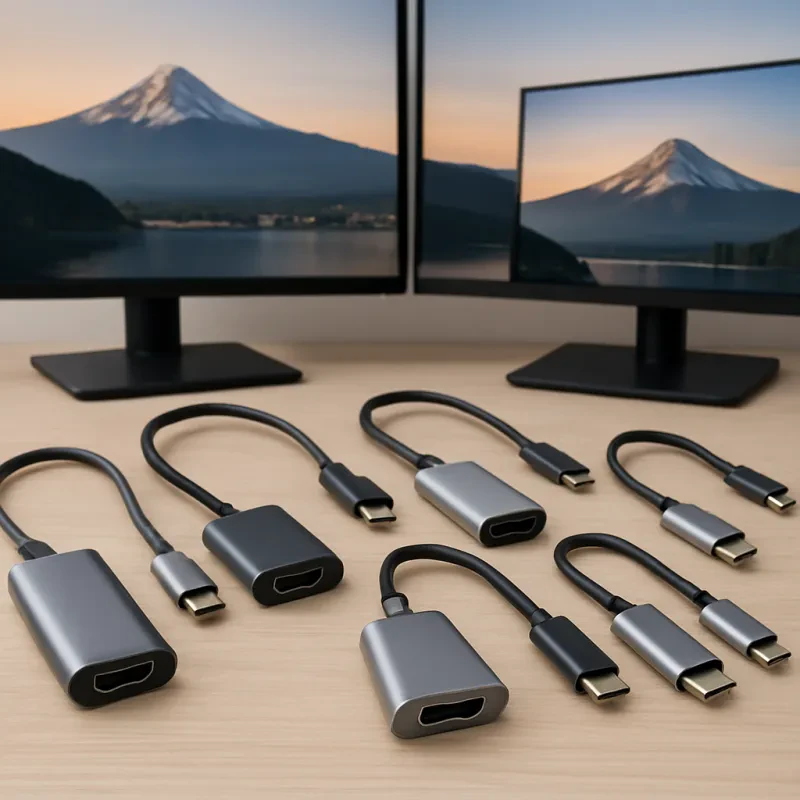Understanding USB-C Cables: What You Need to Know Before You Buy
USB-C cables have become increasingly popular due to their versatility and ability to support faster transfer speeds and charging capabilities. However, not all USB-C cables are created equal, and it's essential to understand their differences before making a purchase. Here's what you need to know about USB-C cables to make an informed decision:
What is USB-C?
USB-C (sometimes referred to as USB Type-C) is a newer, reversible connector that has replaced the traditional USB Type-A and Type-B connectors. USB-C cables have the same connector at both ends, making it easier to plug in devices without worrying about which way is up or down.
What are the benefits of USB-C?
USB-C cables can transfer data and power in the same cable, making it possible to charge devices while also transferring data at high speeds. They are also more durable than older USB cables, and their smaller size makes them easier to carry around.
What should I look for when buying a USB-C cable?
When buying a USB-C cable, it's important to consider the following factors:
- Speed: USB-C cables have various transfer speeds, but not all cables support the same speeds. Look for cables that support the USB 3.1 Gen 2 standard, which has a data transfer rate of up to 10 gigabytes per second.
- Power: If you plan on using your USB-C cable to charge devices, make sure to check the wattage it can handle. Higher wattage means faster charging.
- Durability: Make sure to choose a USB-C cable that is sturdy and durable. Cables with braided jackets or reinforced connectors are less likely to break or fray over time.
- Length: USB-C cables come in different lengths for different purposes. Decide what length you need based on where you plan on using the cable.
Conclusion
USB-C cables offer a range of benefits including faster transfer speeds and charging capabilities. When purchasing a USB-C cable, it's important to consider the speed, power, durability, and length to ensure you get the best possible cable for your needs. With this information, you can confidently choose the right USB-C cable for you.
The Pros and Cons of USB-C Cables: Is it Worth the Upgrade?
USB-C cables have been on the market for a few years now, and while they are growing in popularity, many people are still hesitant to make the switch. So, what are the pros and cons of USB-C cables, and is it worth the upgrade? Let’s take a closer look.
The Pros:
- Faster Charging and Data Transfer: One of the biggest advantages of USB-C cables is their ability to charge and transfer data at a faster rate. USB-C cables can handle up to 100 watts of power, which means devices can charge quicker than with older USB cable types. Plus, USB-C cables can transfer data at up to 10 gigabits per second, making file transfers lightning fast.
- Reversible Connectors: Unlike older USB cables, USB-C connectors are reversible, which means you won’t have to worry about trying to plug the cable in the wrong way. This makes for a more convenient user experience.
- Compatibility: Most modern devices are now coming equipped with USB-C ports. This means that as time goes on, you’ll likely increasingly come across devices that require USB-C cables. Therefore, it makes sense to start investing in USB-C cables now.
- Universal Compatibility: Because they are growing in popularity, USB-C cables are becoming more widely adopted and supported by both software and hardware systems. This means that you’ll be able to use a USB-C cable with multiple devices, making it more versatile than older USB cables.
The Cons:
- Incompatibility with Older Devices: While USB-C cables are becoming more widely used, many older devices still require older USB cables. Therefore, if you upgrade to USB-C, you may need to keep older cables on hand in order to be able to connect to older devices.
- Expensive: USB-C cables can be more expensive than older USB cables. However, prices are starting to come down as more companies adopt the technology.
- Not Always Necessary: While USB-C cables offer a number of benefits, they may not be necessary for everyone. If you primarily use an older device that does not require a USB-C cable, you may not see any benefits from upgrading.
Conclusion:
In conclusion, USB-C cables offer a range of benefits when compared to older USB cables. They are faster, more versatile, and have a convenient reversible connector. However, they can be more expensive and incompatible with older devices. Ultimately, whether or not USB-C cables are worth upgrading to is a personal decision that depends on your individual tech needs and budget.
How to Choose the Right USB-C Cable for Your Device: A Buyer's Guide
USB-C cables have become increasingly popular in recent years due to their faster charging and data transfer speeds, as well as their versatility. However, with so many different types of USB-C cables on the market, it can be difficult to choose the right one for your device. Here are some key factors to consider when shopping for a USB-C cable:
Cable Length
One of the first things to consider when purchasing a USB-C cable is the length you need. Cables come in a variety of lengths, ranging from short (less than one foot) to long (up to six feet or more). Think about where you plan to use the cable and measure the distance between your device and the power source or USB port. This will help you determine the appropriate length for your needs.
Data Transfer Speed
USB-C cables are capable of transferring data at a much faster rate than their predecessors. However, not all USB-C cables are created equal. Look for a cable that supports USB 3.1 Gen 2 or higher for the fastest possible data transfer speeds. If you plan on using the cable to transfer large files frequently, this is an important feature to consider.
Charging Speed and Power
Another important consideration is the charging speed and power of the cable. A USB-C cable that supports Power Delivery (PD) will deliver more power to your device, resulting in faster charging times. Additionally, make sure the cable's power rating matches the power requirement of your device. You may also want to consider a cable with built-in surge protection to safeguard your device against power surges.
Type of Connector
There are several types of USB-C connectors, including USB-C to USB-C, USB-C to USB-A, and USB-C to HDMI. Consider the ports available on your device and which type of connector you will need to connect your device to another device or power source.
Brand and Quality
Finally, consider the brand and quality of the USB-C cable. Cheaper, lower-quality cables may not last as long or perform as well as more expensive options. Look for cables that are made from high-quality materials and have sturdy connectors to ensure the cable will last through frequent use.
In conclusion, choosing the right USB-C cable for your device requires considering several factors, including cable length, data transfer speed, charging speed and power, type of connector, and brand and quality. By carefully evaluating these factors, you can find the right cable to meet your needs and ensure optimal performance for your device.
Fast Charging USB-C Cables (2 pack)
Get the Fastest Charge with Our USB-C Cables - Pack of 2
Product information
$7.99 $6.99
Product Review Score
4.88 out of 5 stars
114 reviews